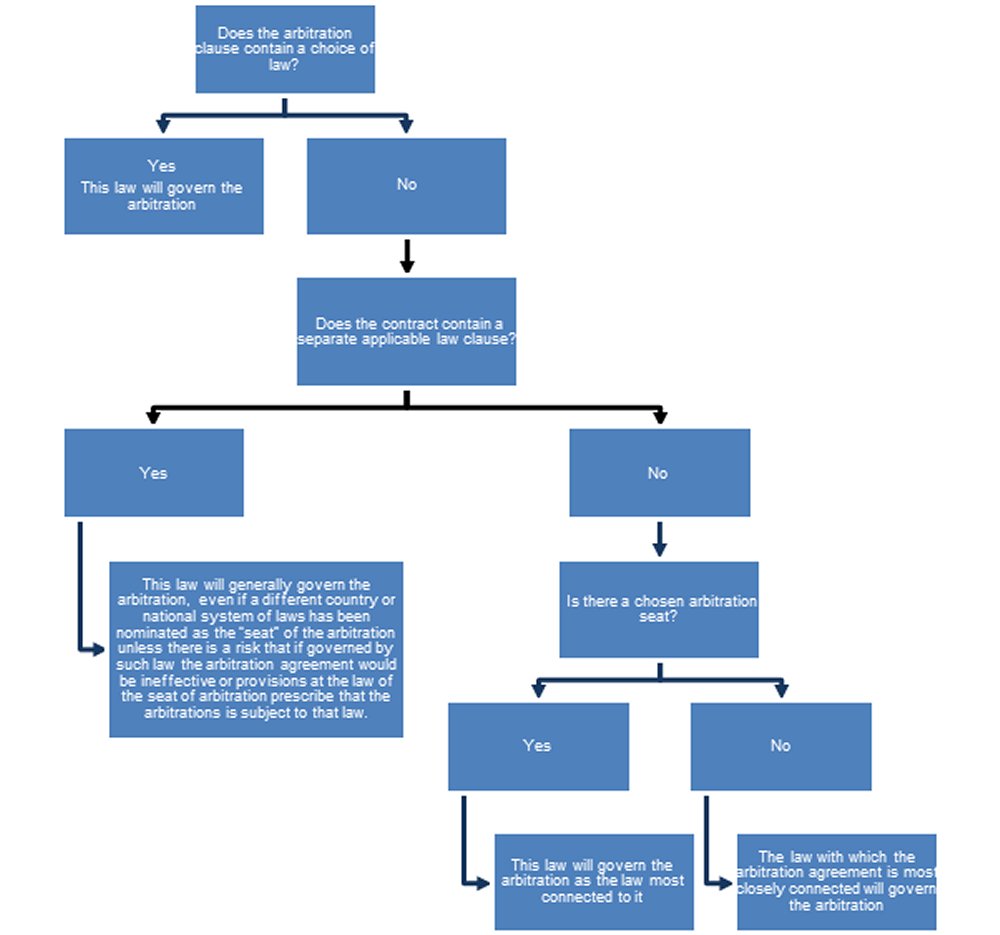Determining the proper law of an agreement to resolve disputes by arbitration
13th April, 2021
Where a contract contains an agreement to resolve disputes by arbitration, a case recently decided by the Supreme Court addressed the question of which national system of laws governed the validity and scope of the agreement.
From 1 January 2021 parties wishing to enforce an English judgment within the EU no longer have the automatic benefits of direct recognition and enforcement whereby the English judgment could be recognised an enforced within the EU as if it were a judgment of the courts of other EU Member States. This is the same for EU Member States now seeking to enforce a judgment in the English Courts.
The UK-EU Trade and Cooperation Agreement (TCA) has, however, had no impact on the enforcement of English arbitral awards within the EU as their recognition and enforcement is independently secured by the New York Convention on the Recognition and Enforcement of Foreign Arbitral Awards 1958 (“The New York Convention”). Therefore Post-Brexit parties may look more and more to arbitration as an alternative manner of resolving international disputes and it is important that the terms of such an agreement, in particular in respect of law and jurisdiction, are certain.
The case of Enka Insaat ve Sanayi v OOO Insurance Co Chubb concerned a contract which contained an arbitration agreement which provided for an arbitration seated in London governed by the International Chamber of Commerce rules, but was silent as to the law governing the arbitration agreement. As an arbitration agreement is treated as an independent agreement distinct from the contract which contains it for certain purposes such as determining its validity of enforceability, the question arose as to which law in the absence of an express choice governed the arbitration agreement, the law of the seat or the law governing disputes in the main contract where both are different.
This case set out the principles to be followed to determine the law governing the arbitration agreement, which can be summarised as follows:

The Supreme Court held that where the law applicable to the arbitration agreement is not specified, as a starting point, the choice of governing law of the main contract will generally apply to an arbitration agreement. Significantly the main contract in this case did not contain a clear and unambiguous choice of governing law.
Where the choice of law to govern the arbitration agreement has not been specified, the arbitration agreement has to be governed by the law with which it is most closely connected. Where a seat has been chosen, it will generally be the seat, even if it differs from the law applicable to the parties’ substantive contractual obligations.
The Court also commented that if the contract requires the parties to undertake good faith negotiations, mediation or any other procedure before invoking arbitration, this will not generally provide a reason to displace the law of the seat of arbitration as the law applicable to the arbitration agreement by default in absence of a choice of law to govern it.
Since there was no choice of law governing the contract in this case, the law governing the arbitration agreement had to be determined by applying the closest connection test, and in that regard, London as the seat of arbitration was considered as a close connection. Accordingly, English law was determined as the law governing the arbitration agreement, the evidence that the contractual obligations were to be performed in Russia was not sufficiently strong to suggest that Russian law should also govern the arbitration agreement and displace the law of the seat of the arbitration.
How can we help?
Brexit has encouraged many businesses to reconsider the suitability of their dispute resolution strategy and international businesses are more likely to consider using arbitration as a mechanism for resolving disputes in an effort to avoid the present gaps in recognition and enforcement of English judgments in the EU because the New York Convention provides a reliable enforcement regime of arbitral awards in the EU Member States.
The law governing the arbitration agreement is hardly ever expressly mentioned in the arbitration clause. However, it has great significance in respect of the arbitrability of the disputes and the validity of the arbitration agreement and parties should look carefully at the wording of their dispute resolution clause.
Please note that this briefing is designed to be informative, not advisory and represents our understanding of English law and practice as at the date indicated. We would always recommend that you should seek specific guidance on any particular legal issue.
This page may contain links that direct you to third party websites. We have no control over and are not responsible for the content, use by you or availability of those third party websites, for any products or services you buy through those sites or for the treatment of any personal information you provide to the third party.
Topics:

